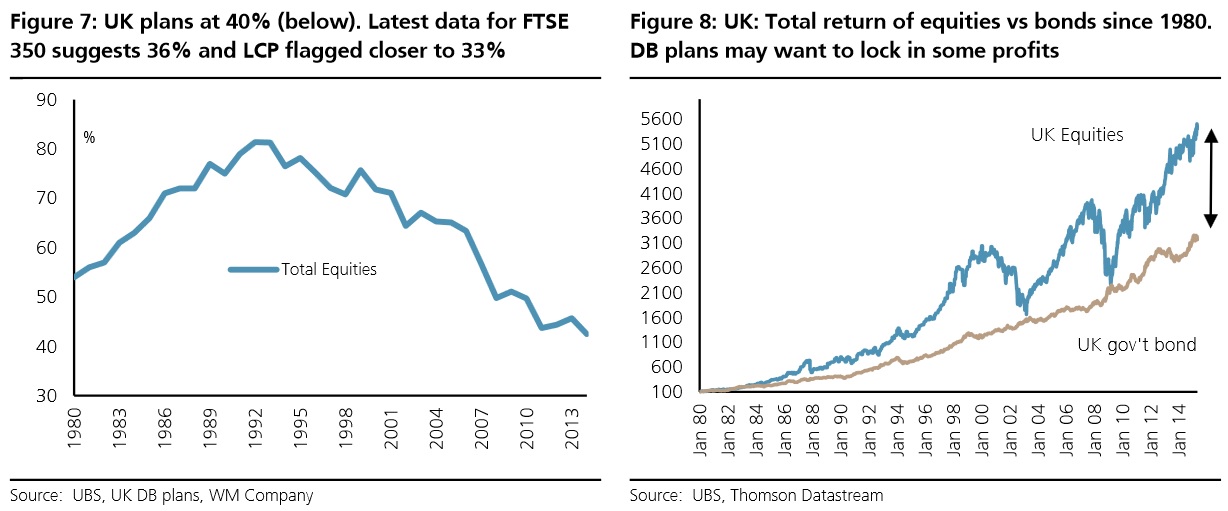Defined benefit (DB) pensions aim to cut equity exposure drastically in the next decade, a study has found—with defined contribution (DC) plans sitting on the other side of the trade.
A report by UBS analysts in conjunction with consultancy LCP into the UK pensions landscape found that DB pensions cut exposure to equities by more than half—from 82% to 36%—in the past 20 years. In the next decade, these pensions plan to further reduce their holdings to an average 15%.
“For corporate and public DB plans that equals roughly £23 billion [$35.6 billion] net selling a year,” the report said. This move was “not big, but still a drag rather than a boost” to equity markets.
However, any drag on equity markets by DB sellers was likely to be offset by the growing demand for equities from younger, growing DC pensions. “This is the start of a new dynamic,” the report stated.

The authors estimated that DC plans invest roughly 70% to 80% of their portfolios in equities. Given an expected DC growth rate of £30 billion a year—due largely to auto-enrolment—UBS and LCP said the net investment “more than offsets the net selling by DB plans”.
On the fixed income side, the authors said DB pensions had generally ceased investment into mainstream bonds, particularly government bonds, due to “insanely expensive” valuations.
“While the trend suggests a desire for bonds, we have seen a pause recently: bond holdings have fallen below 40% to circa 37%,” the report said. It added that trustees had been “getting twitchy about capital losses”. However, some were still prepared to pay for negative-yielding government bonds, seeing the loss as an insurance premium for liability matching.

Related Content:Soaring Valuations Fail to Alter Allocations & The Strange Times of Negative Yields
